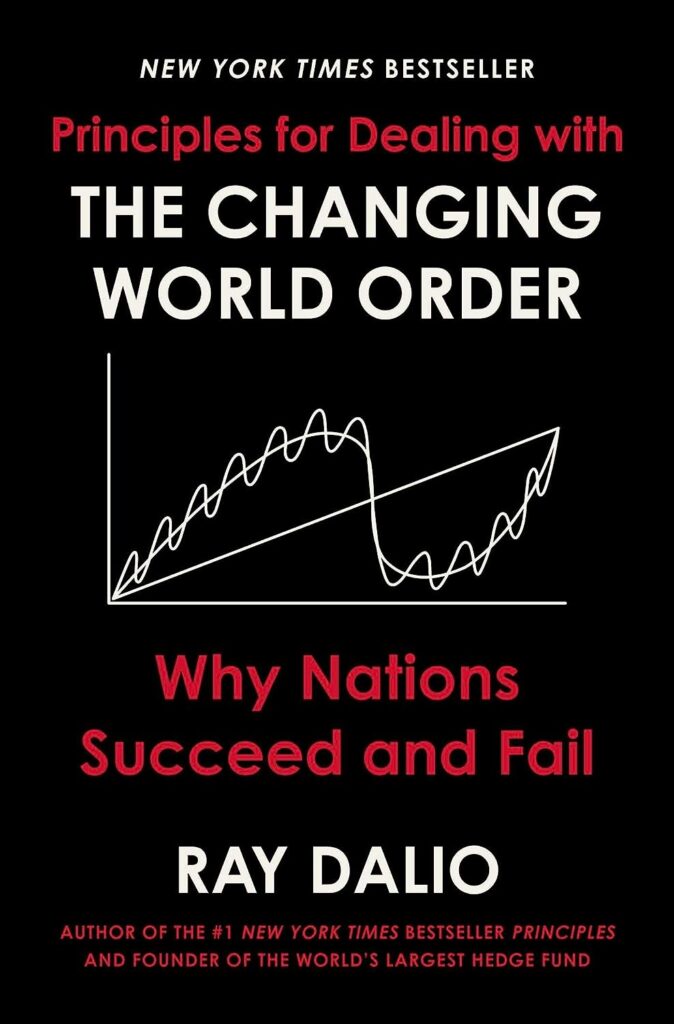
Ray Dalio’s Principles for Dealing with the Changing World Order: Why Nations Succeed and Fail is a thought-provoking and meticulously researched book that offers a deep dive into the dynamics of global economics and geopolitics. Dalio, a renowned investor and founder of Bridgewater Associates, brings his extensive knowledge and analytical prowess to bear on the question of why nations rise and fall over time.
Overview
Dalio’s book is structured around a historical analysis of past empires and their trajectories, drawing parallels to current global trends. He identifies and elaborates on the patterns that have historically led to the success and decline of nations, focusing on factors such as debt cycles, political stability, innovation, and the strength of institutions. His approach is data-driven, with a wealth of charts, graphs, and empirical evidence supporting his arguments.
Strengths
One of the book’s greatest strengths is its rigorous research. Dalio delves into the history of various empires, including the Dutch, British, and American, providing a comprehensive overview of the factors that contributed to their ascendance and eventual decline. His analysis is nuanced and multifaceted, taking into account economic indicators, social factors, and geopolitical developments.
Dalio’s intelligence and depth of knowledge are evident throughout the book. His ability to distill complex economic and political phenomena into accessible insights is commendable. Readers will find his framework for understanding the rise and fall of nations both informative and enlightening.
Criticisms
Despite the book’s many strengths, there are some aspects that may not sit well with all readers. Dalio’s apparent admiration for the Chinese regime is one such point. While it is important to objectively analyze the factors contributing to China’s recent rise, Dalio’s tone can come across as overly favorable, which might be perceived as lacking critical perspective on the regime’s more controversial practices.
Furthermore, Dalio’s globalist leanings are evident in his analysis. His emphasis on the interconnectedness of global economies and the benefits of globalization may not resonate with those who are skeptical of globalist policies. Some readers might find his perspective too accommodating of the challenges posed by globalization, such as economic inequality and loss of national sovereignty.
Conclusion
Principles for Dealing with the Changing World Order is an intellectually stimulating and informative book that offers valuable insights into the dynamics of global power shifts. Ray Dalio’s extensive research and analytical acumen make this book a worthwhile read for anyone interested in economics, history, and international relations.
However, readers should be aware of Dalio’s apparent bias towards the Chinese regime and his globalist perspective, which may color his analysis. Despite these critiques, the book remains a significant contribution to the discourse on global economic and political trends, and there is much to be gained from studying Dalio’s work.
Check out the book here.
In summary, while Dalio may at times come across as overly accommodating towards certain regimes and globalist ideals, his book is a treasure trove of knowledge and offers a compelling framework for understanding the complexities of global power dynamics.
Tags:
#BookReview #RayDalio #GlobalEconomics #Geopolitics #WhyNationsSucceedAndFail

